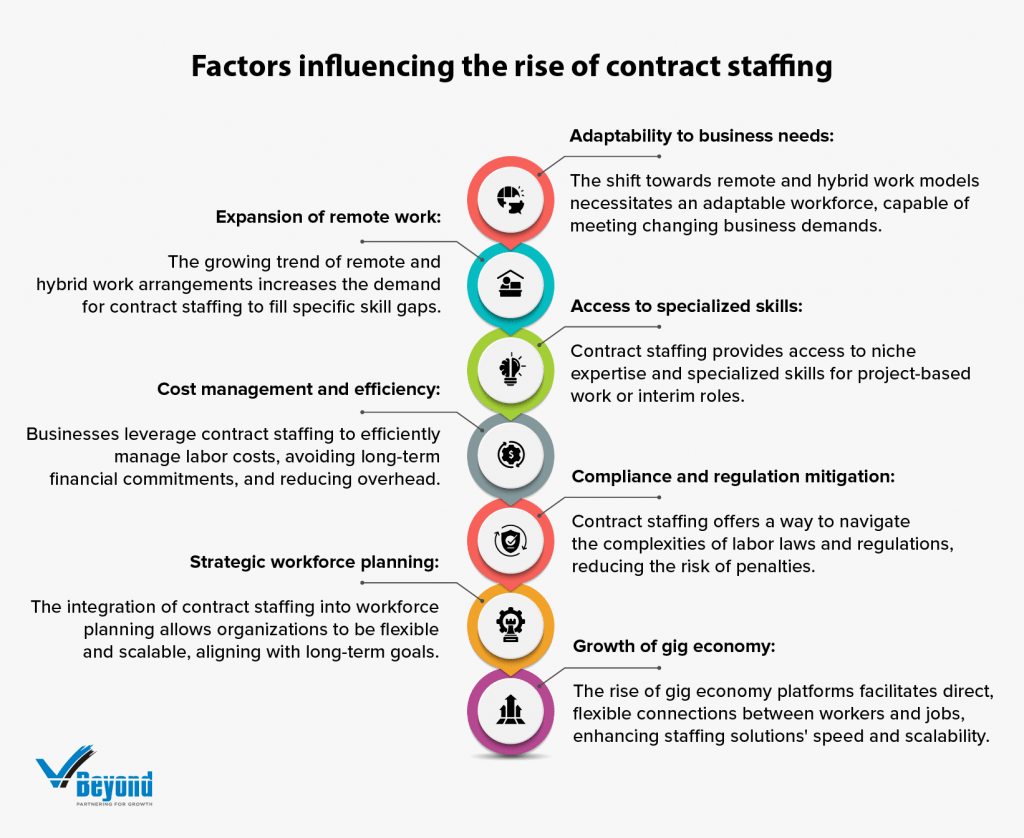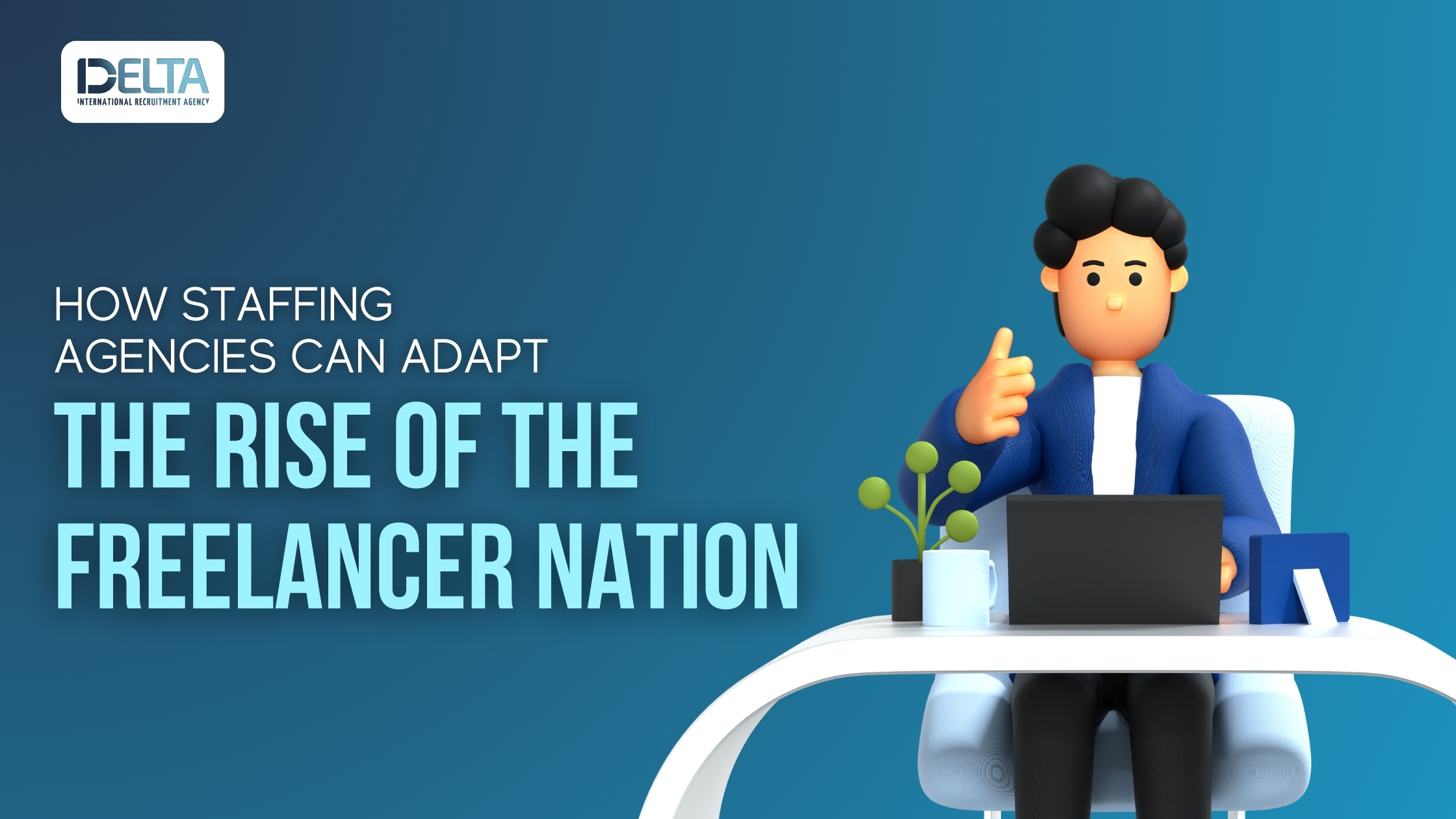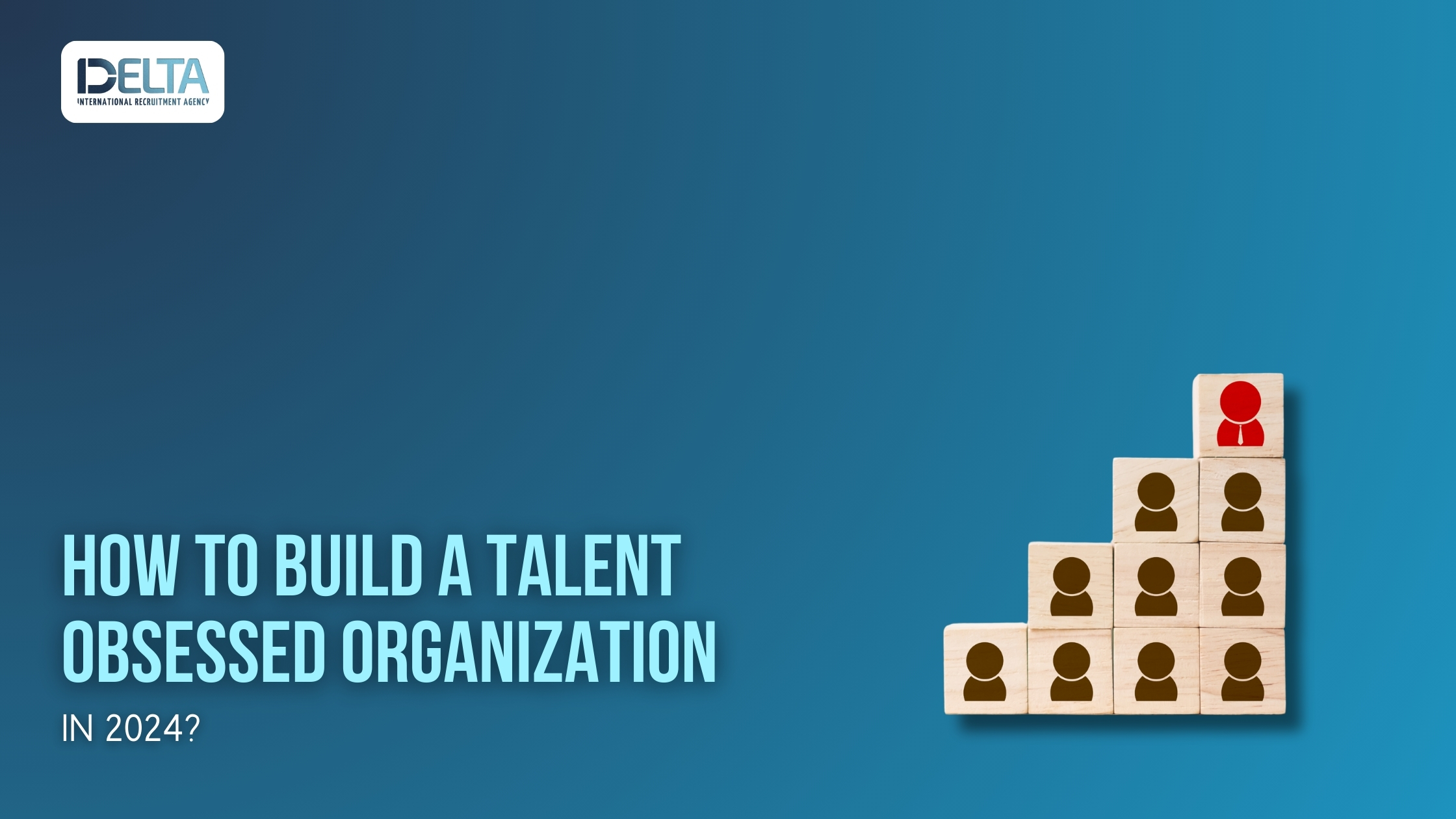The rise of the freelancer nation is a major trend that is transforming the way businesses hire and manage talent. In this article, we will explore the challenges and opportunities that freelancers pose for staffing agencies, and discuss how staffing agencies can adapt their business models to the changing needs of their clients.
We will also provide tips on how to attract and retain freelance talent, and how to manage the changing needs of your clients.
Staffing Agencies and Freelancers
Staffing agencies have traditionally been a go-to resource for businesses looking to hire employees. However, in recent years, the rise of the freelancer economy has posed a challenge to staffing agencies. Freelancers offer businesses a number of benefits, including flexibility, cost-effectiveness, and access to specialized skills. As a result, businesses are increasingly turning to freelancers instead of staffing agencies.
Staffing agencies can adapt to the rise of the freelancer economy by offering a wider range of services, including:
- Freelancer recruitment and placement
- Freelancer management and onboarding
- Freelancer training and development
- Freelancer marketing and branding
By offering these services, staffing agencies can help businesses find the best freelancers for their needs and ensure that they are successfully integrated into the business.
In addition, staffing agencies can also benefit from the rise of the freelancer economy by developing relationships with freelancers and becoming a trusted resource for businesses looking to hire freelance talent. By providing high-quality services and support, staffing agencies can build a strong reputation and become a valuable partner for businesses of all sizes.
Staffing Agencies and the Short Project Economy
The Short Project Economy is a term used to describe the growing trend of workers freelancing or working on a contract basis for multiple companies. This trend has been driven by a number of factors, including the rise of the internet and the increasing demand for flexible work arrangements.
For staffing agencies, the Short Project Economy presents both challenges and opportunities. On the one hand, it can be difficult to compete with the flexibility and cost-effectiveness of freelance work. On the other hand, the Short Project Economy also creates a new pool of potential talent that staffing agencies can tap into.
In order to succeed in the Short Project Economy, staffing agencies need to adapt their business models to meet the needs of both clients and freelancers. This means offering a wider range of flexible work arrangements, providing better support to freelancers, and developing strong relationships with clients.
The Short Project Economy and Staffing Agencies
The Short Project Economy is a rapidly growing trend that is having a significant impact on the staffing industry. In a Short Project Economy, workers are typically self-employed and contract their services to multiple companies on a short-term basis. This can be a great way for workers to earn extra income and have more flexibility in their work schedules, but it can also pose challenges for staffing agencies.
One of the biggest challenges for staffing agencies in the Short Project Economy is finding and recruiting qualified talent. In a traditional job market, staffing agencies would rely on their networks of contacts to find qualified candidates. However, in the Short Project Economy, workers are more likely to be found on online platforms such as Upwork and Fiverr. This can make it difficult for staffing agencies to compete with other businesses that are also looking to hire the best freelance talent.
Another challenge for staffing agencies in the Short Project Economy is managing the changing needs of their clients. In a traditional job market, clients would typically hire employees on a full-time basis. However, in the Short Project Economy, clients are more likely to need temporary or part-time workers. This can make it difficult for staffing agencies to provide the right type of workers for their clients' needs.
Despite these challenges, staffing agencies can still thrive in the Short Project Economy. By adapting their business models to the changing needs of the market, staffing agencies can continue to provide valuable services to both workers and businesses.
Staffing Agencies in the Short Project Economy
The Short Project Economy has created a number of challenges and opportunities for staffing agencies. On the one hand, freelancers offer a number of benefits to staffing agencies, including flexibility, cost-effectiveness, and access to a wide range of skills and expertise. On the other hand, staffing agencies need to adapt their business models to the changing needs of clients, who are increasingly looking for flexible and cost-effective staffing solutions.
Here are some of the key challenges and opportunities that staffing agencies face in the Short Project Economy:
- Flexibility: Freelancers are often more flexible than traditional employees, which can be a major benefit for staffing agencies. Freelancers can be brought on board quickly and easily to meet changing staffing needs, and they can also be let go just as easily when those needs change.
- Cost-effectiveness: Freelancers can often be hired for less than traditional employees, which can save staffing agencies money. This is especially true for short-term projects or projects that require specialized skills or expertise.
- Access to skills and expertise: Freelancers offer a wide range of skills and expertise, which can be a valuable asset for staffing agencies. This can help staffing agencies to meet the needs of their clients, even if those needs are for specialized or niche skills.
- Competition: The Short Project Economy has created a more competitive landscape for staffing agencies. Freelancers can now easily find work on their own, which means that staffing agencies need to work hard to attract and retain freelance talent.
- Compliance: Staffing agencies need to be aware of the different compliance requirements that apply to freelancers. These requirements can vary depending on the industry, the location, and the type of work that the freelancer is doing.
Staffing agencies that are able to adapt to the challenges and opportunities of the Short Project Economy will be well-positioned to succeed in the future. By embracing the flexibility, cost-effectiveness, and access to skills and expertise that freelancers offer, staffing agencies can provide their clients with the best possible service.

Image Source: vbeyond.com
How Staffing Agencies Can Adapt to the Short Project Economy
The rise of the freelancer economy presents a number of challenges and opportunities for staffing agencies. On the one hand, freelancers can offer staffing agencies a number of benefits, such as flexibility, cost-effectiveness, and access to a wide range of skills and expertise. On the other hand, staffing agencies need to adapt their business models to attract and retain freelance talent, and to manage the changing needs of their clients.
Here are some specific ways that staffing agencies can adapt to the Short Project Economy:
- Embrace flexibility: Freelancers value flexibility, so staffing agencies need to offer flexible work arrangements in order to attract and retain top talent. This may include offering remote work options, flexible hours, and the ability to work on a variety of projects.
- Offer competitive pay and benefits: Freelancers are often well-compensated for their work, so staffing agencies need to offer competitive pay and benefits in order to stay competitive. This may include offering health insurance, paid time off, and retirement plans.
- Provide training and development opportunities: Freelancers are constantly learning and evolving, so staffing agencies need to provide training and development opportunities in order to help them stay ahead of the curve. This may include offering workshops, courses, and mentorship programs.
- Develop strong relationships with clients: Freelancers value relationships with their clients, so staffing agencies need to develop strong relationships with their clients in order to retain their business. This may include providing excellent customer service, going the extra mile, and being responsive to their needs.
By adapting their business models to the Short Project Economy, staffing agencies can position themselves to thrive in this new landscape.
Benefits of Using a Staffing Agency for Freelancers
There are many benefits to using a staffing agency for freelancers, including:
- Access to a wider range of jobs
- Better pay and benefits
- More opportunities for career development
- Support from a dedicated recruiter
- Peace of mind knowing that you are working with a reputable company
If you are a freelancer, I encourage you to consider using a staffing agency to help you find the best possible jobs and opportunities.
Benefits of Using a Staffing Agency for Businesses
There are many benefits to using a staffing agency for businesses, including:
- Access to a wider pool of talent
- Reduced time and cost of recruiting
- Increased flexibility and scalability
- Improved risk management
- Enhanced compliance with employment laws
By using a staffing agency, businesses can gain access to a wider pool of talent than they would be able to reach on their own. This can be especially beneficial for businesses that are looking for specialized skills or experience. Additionally, staffing agencies can help businesses reduce the time and cost of recruiting by taking on the tasks of sourcing, screening, and interviewing candidates.
Staffing agencies can also help businesses improve their flexibility and scalability. By using a staffing agency, businesses can quickly and easily add or remove staff as needed. This can be helpful for businesses that experience seasonal fluctuations in demand or that are expanding or contracting their operations.
Finally, staffing agencies can help businesses improve their risk management by providing them with a pool of pre-screened candidates. This can help businesses avoid the risks associated with hiring the wrong person, such as employee turnover, lawsuits, and compliance violations.
In addition to the benefits listed above, staffing agencies can also provide businesses with a number of other services, such as:
- Onboarding and training
- Payroll and benefits administration
- Workers' compensation and liability insurance
By using a staffing agency, businesses can outsource these tasks to a third-party provider, which can free up their time and resources to focus on their core business operations.
Conclusion
The rise of the freelancer nation is a major trend that is having a significant impact on the staffing industry. Staffing agencies need to adapt their business models to meet the needs of this new workforce, or they will risk being left behind. By embracing the Short Project Economy, staffing agencies can tap into a vast pool of skilled and experienced freelancers, and provide their clients with the flexible and cost-effective staffing solutions they need.
In order to succeed in the age of the freelancer nation, staffing agencies need to focus on building strong relationships with their clients and freelancers, and providing them with the best possible service. They also need to be constantly innovating and adapting their business models to meet the changing needs of the market.
By following these tips, staffing agencies can thrive in the freelancer nation and continue to play a vital role in the employment landscape.
Tips for Employers: Contract Recruitment Industry




